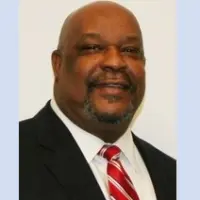About Warren Yazoo Behavioral Health, Inc.
Warren Yazoo Behavioral Health champions general wellbeing for individuals via affordable mental health care and substance use recovery. They serve adults, adolescents and children in southwestern Mississippi from their location in Vicksburg.
Individuals struggling with substance use disorder can receive customized and outcome-dependent treatment at their Chemical Dependency Center or CDC. This center is located on Wisconsin Avenue just a mile west of US Highway 61 and a few miles north of Vicksburg National Military Park in North Vicksburg within Warren County.
Addiction Treatment for Specific Populations
The CDC supports adults and adolescents in recovery including expectant mothers. They can help you navigate opioid use disorders, polysubstance use issues and co-occurring mental health issues. They offer crisis support, residential care and intensive outpatient programs (IOP) alongside recovery support services.
Opioid Use Crisis Support and Inpatient Care
The CDC provides crisis support for individuals experiencing acute opioid withdrawal symptoms or overdose. This program focuses on providing immediate relief, reversal or restoring stable functioning and referral to the appropriate level of care.
This may involve a transition to a residential treatment program for those whose symptoms require high-intensity care following stabilization. The crisis team coordinates with first responders and emergency room personnel to ensure a smooth transition. Their inpatient residential recovery takes place in a structured 25-bed facility.
This program also serves individuals who require high-intensity residential care based on their assessment, not just those transitioning from crisis care. Residents receive tailored care under the guidance of an interdisciplinary team that supports them 24/7. The program also offers social support activities and ongoing services to help sustain long-term recovery.
A Multi Faceted Approach to Addiction Treatment
Therapy sessions here draw from the matrix model, which integrates counseling and peer support with spiritual practices and relapse prevention techniques. Their IOP emphasizes family involvement with family sessions held monthly to discuss topics like Al-Anon, Nar-Anon and the disease of addiction. Clients also benefit from tailored recovery support services to ensure stability as they navigate recovery. This may include case management, peer support and assistance with housing and employment.
Latest Reviews
Rehab Score
Other Forms of Payment
Private insurance refers to any kind of healthcare coverage that isn't from the state or federal government. This includes individual and family plans offered by an employer or purchased from the Insurance Marketplace. Every plan will have different requirements and out of pocket costs so be sure to get the full details before you start treatment.
Self-pay involves paying for treatment out of your own pocket. You can use savings or credit, get a personal loan, or receive help from family and friends to fund your treatment. If you don't have insurance or your insurance plan doesn't cover a specific program, self-pay can help ensure you still get the care you need.
Financial aid can take many forms. Centers may have grants or scholarships available to clients who meet eligibility requirements. Programs that receive SAMHSA grants may have financial aid available for those who need treatment as well. Grants and scholarships can help you pai for treatment without having to repay.
Medicaid is a state based program that helps lower-income individuals and families pay for healthcare. Medicaid covers addiction treatment so those enrolled can use their coverage to pay for rehab. When a program accepts Medicaid the client often pays very little or nothing out of their own pocket.
Medicare is a federal program that provides health insurance for those 65 and older. It also serves people under 65 with chronic and disabling health challenges. To use Medicare for addiction treatment you need to find a program that accepts Medicare and is in network with your plan. Out of pocket costs and preauthorization requirements vary, so always check with your provider.
Addiction Treatments
Levels of Care
Outpatient Programs (OP) are for those seeking mental rehab or drug rehab, but who also stay at home every night. The main difference between outpatient treatment (OP) and intensive outpatient treatment (IOP) lies in the amount of hours the patient spends at the facility. Most of the time an outpatient program is designed for someone who has completed an inpatient stay and is looking to continue their growth in recovery. Outpatient is not meant to be the starting point, it is commonly referred to as aftercare.
Inpatient rehab provides a highly supportive and structured environment for clients in early recovery and for those who are at an elevated risk of relapse. Clients remain at the treatment center for the duration of their programs, though some inpatient rehabs offer supervised group excursions. Clients engage in intensive individual, group, and or family counseling. They may also receive recovery-focused life skills training to support their sustained sobriety and community reintegration. Many programs offer holistic therapies, such as meditation.
Treatments
Many of those suffering from addiction also suffer from mental or emotional illnesses like schizophrenia, bipolar disorder, depression, or anxiety disorders. Rehab and other substance abuse facilities treating those with a dual diagnosis or co-occurring disorder administer psychiatric treatment to address the person's mental health issue in addition to drug and alcohol rehabilitation.
Mental health rehabs focus on helping individuals recover from mental illnesses like bipolar disorder, clinical depression, anxiety disorders, schizophrenia, and more. Mental health professionals at these facilities are trained to understand and treat mental health issues, both in individual and group settings.
Programs
Adult rehab programs include therapies tailored to each client's specific needs, goals, and recovery progress. They are tailored to the specific challenges adult clients may face, including family and work pressures and commitments. From inpatient and residential treatment to various levels of outpatient services, there are many options available. Some facilities also help adults work through co-occurring conditions, like anxiety, that can accompany addiction.
Clinical Services
Cognitive Behavioral Therapy (CBT) is a therapy modality that focuses on the relationship between one's thoughts, feelings, and behaviors. It is used to establish and allow for healthy responses to thoughts and feelings (instead of unhealthy responses, like using drugs or alcohol). CBT has been proven effective for recovering addicts of all kinds, and is used to strengthen a patient's own self-awareness and ability to self-regulate. CBT allows individuals to monitor their own emotional state, become more adept at communicating with others, and manage stress without needing to engage in substance abuse.
Experiential therapy is a form of therapy in which clients are encouraged to surface and work through subconscious issues by engaging in real-time experiences. Experiential therapy departs from traditional talk therapy by involving the body, and having clients engage in activities, movements, and physical and emotional expression. This can involve role-play or using props (which can include other people). Experiential therapy can help people process trauma, memories, and emotion quickly, deeply, and in a lasting fashion, leading to substantial and impactful healing.
Group therapy is any therapeutic work that happens in a group (not one-on-one). There are a number of different group therapy modalities, including support groups, experiential therapy, psycho-education, and more. Group therapy involves treatment as well as processing interaction between group members.
Amenities
-
Residential Setting
-
Private Rooms
Staff

Bobby Barton, LCSW
Executive Director

Donald G. Brown
Deputy Executive Director

Rick Vessell, CPA, CITP
CFO
Contact Information
3444 Wisconsin Ave
Vicksburg, MS 39180